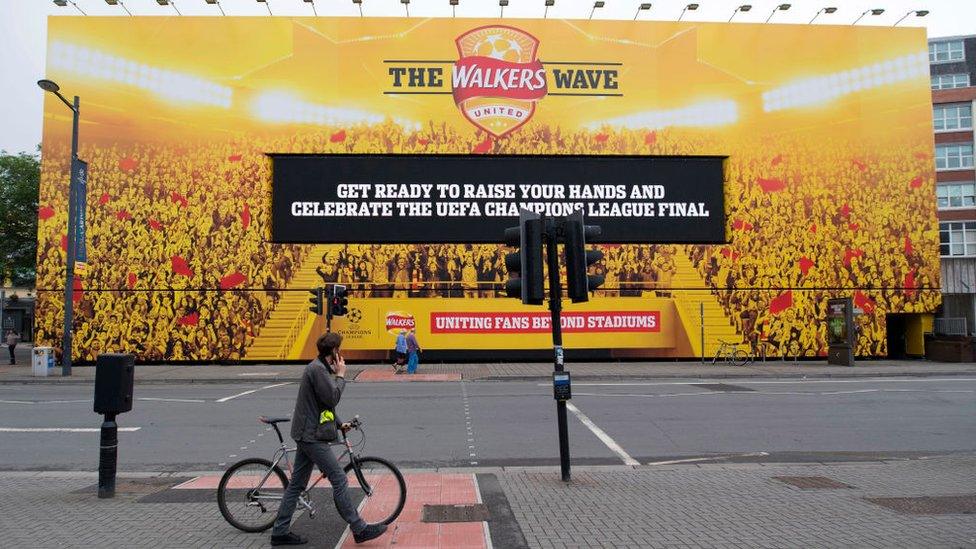Blind people call for action on pavement 'obstacles'
- Published
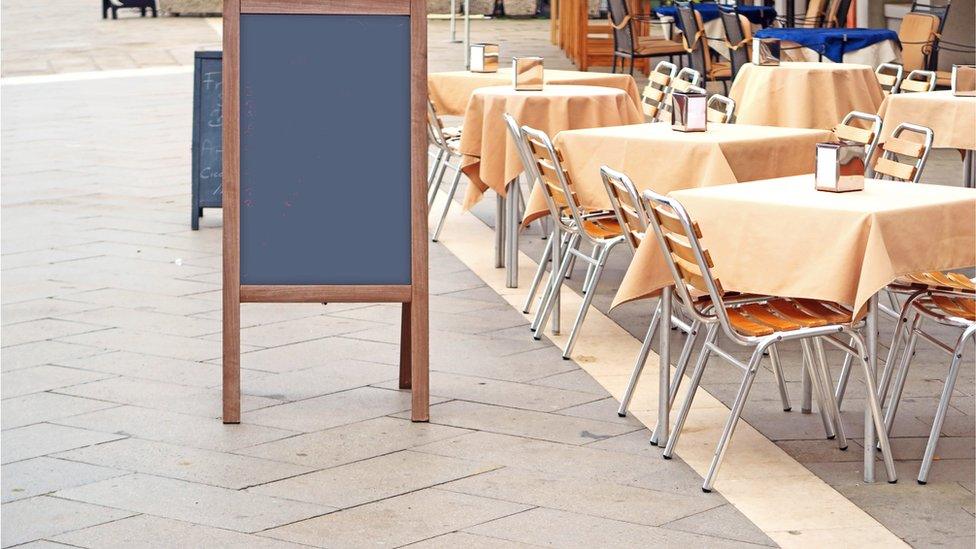
Advertising boards create a formidable obstruction for blind and partially-sighted people
In cities nowadays, you will find yourself dodging street furniture, tables and advertising boards.
Now imagine negotiating those obstacles as a blind or partially-sighted person.
The Royal National Institute for the Blind (RNIB) has said that advertising boards or A-boards are the main cause of injury to blind people on streets.
The organisation's campaign entitled Who put that there, external is aiming to encourage people to report A-board trip hazards.
Tony Barclay, who is registered blind and regularly visits Belfast city centre, makes his way around using a white cane or assisted by his guide dog.
He explained that the problem with the boards is that their point of contact with the ground can be less than an inch.
"A-boards are a pain in the butt because we don't know where they are," he said.
"It's like a slalom course - it's become really, really dangerous."
'Safety and convenience'
Bill Foster also uses a stick to get around and said he has been complaining to Belfast City Council about street furniture for about three years.
One of the problems he has with A-boards is that they are all different sizes.
"You think you're passing it with the white stick but next thing you kick them or trip over them," he added.
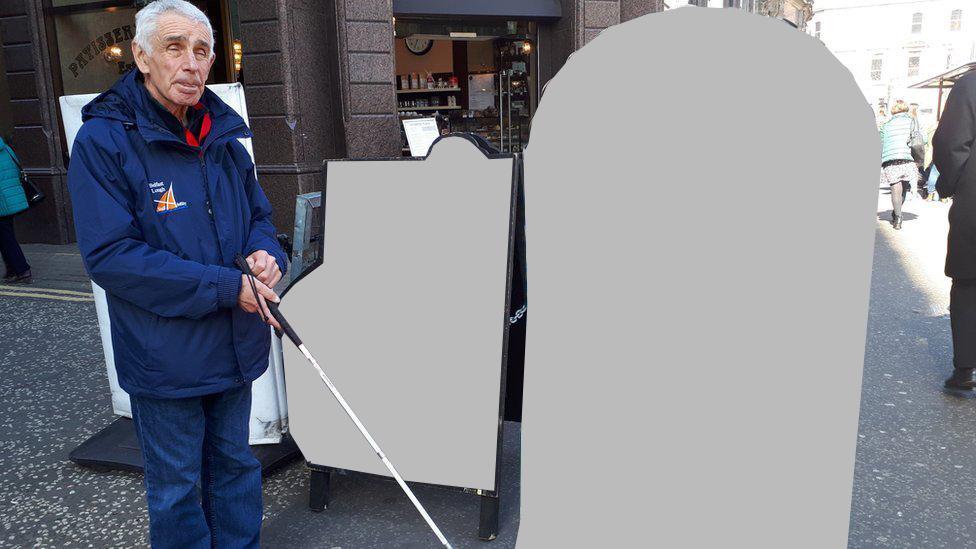
A-boards on Belfast's Donegall Square West cause problems for Bill Foster
In recent years, the Northern Ireland Executive encouraged the development of a "cafe culture" in Northern Ireland's towns and cities.
Businesses wanting to place chairs and tables outside their premises have to get a licence.
But the situation with A-boards seems to be more problematic.
The RNIB told BBC News NI that councils "have the power" to remove them or to make sure ensure they are located in a "safe space or within an enclosed area".
However, Belfast City Council said that the main responsibility for ensuring clear pavements lies with Stormont's Department for Infrastructure.
"Councils do have some powers under the pavement cafe legislation, however there is still ongoing consultation on how this is implemented and enforced by councils," it added.
The Department for Infrastructure's initial response to BBC News NI was that its "understanding" was that councils had powers to remove the boards.
In a later statement, it said it "has the authority" to remove obstructions from footpaths "where they are considered to prejudice the safety or convenience of pedestrians".
'Use common sense'
Democratic Unionist Party (DUP) MLA Jim Wells, who chairs the Northern Ireland Assembly's all-party group on visual impairment, external, said the issue "comes up at almost every meeting".
"There has to be a role for statutory authorities," he added.
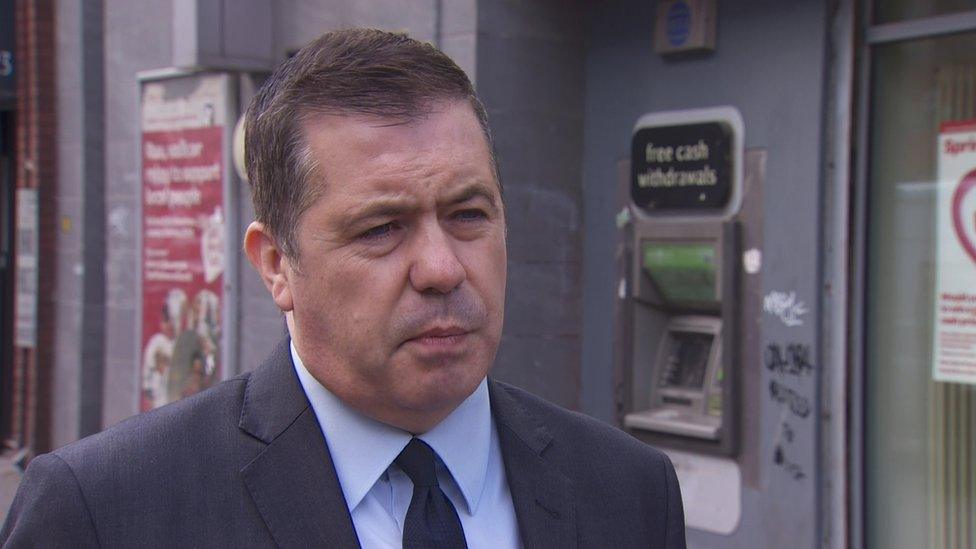
Retailers would use common sense when displaying A-boards, says Glyn Roberts
Retailers placing the boards "seem to have no regard for the visually-impaired", he claimed.
But Glyn Roberts of the trade body Retail NI disputed that claim, saying that retailers wanted to ensure their businesses are "accessible for everyone in the community".
He said a total ban was not an approach his organisation would favour.
"I would trust our members to use common sense," he said.
Last year, Edinburgh City Council implemented an outright ban on A-boards across the Scottish capital.
That was not without controversy as the owners of businesses in side streets and arcades felt it put them at a disadvantage.
A-boards may be the most vexing and often painful obstruction blind and partially-sighted people face on city streets but in many ways they represent just the tip of the iceberg.
Any unpredictable blockage can cause problems, including bins left for collection, cars parked half on the pavement and overhanging branches.
- Published5 November 2018
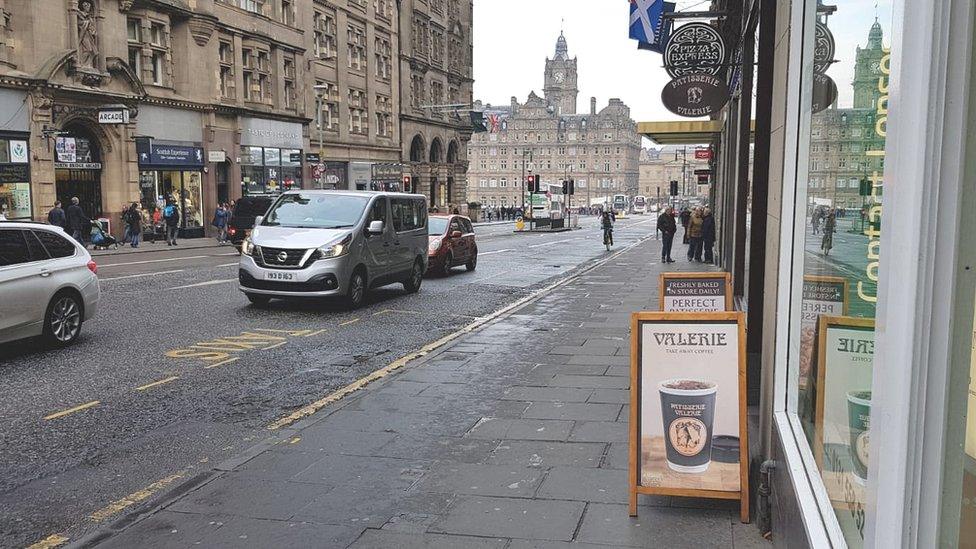
- Published7 February 2019
